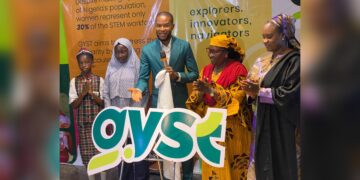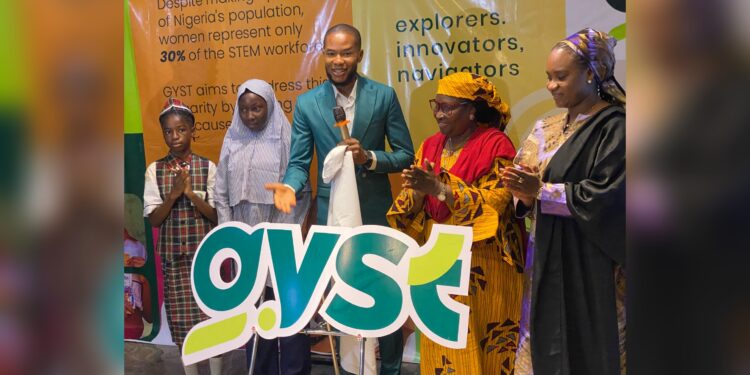By Emmanuel Nduka
Young women in Nigeria have been urged to take up career paths in Science, Technology, Engineering, and Mathematics (STEM), as a panacea to bridge the gap of underrepresentation of women in the space.
Heritage Times HT reports that in today’s innovation-driven world, the underrepresentation of women in STEM remains a pressing concern, with less than 30% of women in the STEM workforce in Africa. In Nigeria, the number drops even lower, with only about 22% of STEM graduates being female.
To bridge this gap, the Dbegotin Educational Foundation is taking significant steps to change this narrative with the launch of Girls Yielding Science and Technology (GYST 2.0), with support from the National Agency for Science and Engineering Infrastructure (NASENI) and the Presidential Implementation Committee on Technology Transfer (PICTT).
Speaking on Friday in Abuja at the launch of GYST 2.0, Dbegotin Foundation’s Executive Director, Mr. Jeremiah Oseni, said the foundation is drawing from the successes of the pilot phase of the initiative in the FCT to expand to Niger, Nasarawa, Plateau, and Kwara states.
He added that the initiative, poised to connect over 200 girls, will provide them with the necessary tools, support, and encouragement to pursue their dreams in STEM.
“We have seen a consistent trend of brilliant girls in schools without the motivation and courage to take up STEM careers. Through this project, we are empowering young girls. We are putting the right tools in their hands to provide technological solutions to problems in their local communities,” Oseni highlighted.
In her remarks, Dr. Tamanuwa Safiya, Deputy Director at FCT Universal Basic Education Board, commended school girls drawn from JSS Jikwoyi and JSS Kuje, who were present at the event, for stepping into a male-dominated field. She emphasized the need for mentorship to fully unlock women’s potential in STEM.
“It’s an opportunity for growth, progress, and innovation. We empower these girls with tools of science and technology. We are now giving them the power to change their lives and their community.
“This is not just a gender issue, it is a woman potential issue,” she harped.
Inspiring stories of impact from past beneficiaries from some of the girls were also shared, underscoring the transformative power of equipping girls with the tools to shape their futures and, by extension, the future of Africa.



































